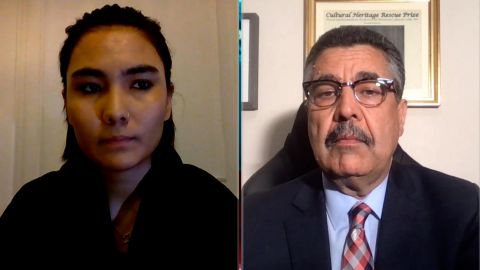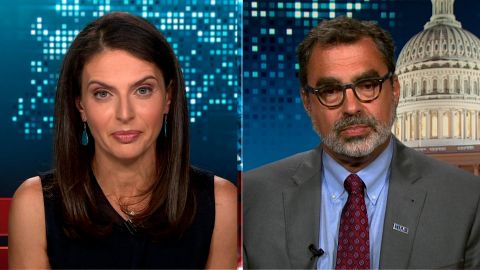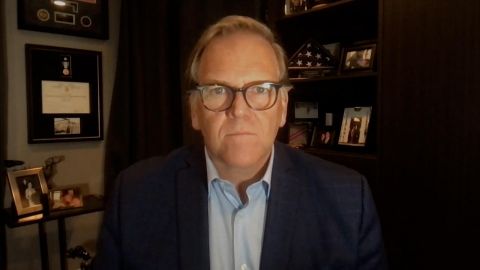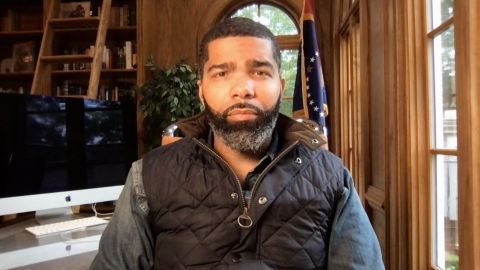Read Transcript EXPAND
BIANNA GOLODRYGA: Let me get your thoughts on what’s concerning you most in these final hours as the U.S. evacuates and meets that August 31st deadline.
MIKE ROGERS, CNN NATIONAL SECURITY COMMENTATOR: Well, it really, today, it’s two things. One is the terrorist attacks target not just Americans but our Western allies and other Afghans who were cooperative with the West. And then the second part of that is there is this unbelievable outside of government effort to try to get these people rescued and out. These are people on Taliban kill lists who have their families threatened to have their daughters in forced marriages and other things and there is this mad scramble. And I have to tell you, I have pretty good acuity into many of these organizations. Most former government folks, special forces, intelligence, other who had just answer the call and on their own with their own finances. My wife is heavily involved in as well, trying to get these people to safety as best they can and out of the country. So all of those, both of those things are the things I worry about today. And I just want to tip my hat to the Brits and the French who have been exceptionally good about trying to go and get people that worked with them out and people that they believe are high value individuals who need to be candidly rescued from the Taliban wrath that we know is coming.
GOLODRYGA: Yes. And I’ll be speaking with the head of an organization that is helping to resettle those refugees right after our conversation. But from a military and a terrorism standpoint, we mentioned those five rockets that were thwarted fired at the Kabul airport today. I’m wondering, does it diminish U.S. footprint on the ground there, impact the caliber of intelligence that we’re able to gather in these remaining hours?
ROGERS: Absolutely. So here’s what happened over time that shrunk our ability to collect intelligence. The U.S. and the NATO efforts kind of abandoned the eastern provinces, places like Asadabad and Jalalabad and other for that big, robust intelligence collection platforms that we had going to make sure that those places didn’t get infiltrated by al-Qaeda or Taliban or others. Well, when that pull-down began to happen, they lost some bits of intelligence, key pieces of intelligence along the way. So the closer it kind of contracted to the cities in the bigger provinces and Kabul, the worse the intelligence got. So once you pulled this plug, the notion that we have this robust intelligence network that is going to give us real-time actionable intelligence has just candidly doesn’t jive with reality and so that worries me a lot. So you’re already seeing this Petri dish of terrorism kind of growing from al-Qaeda to other terrorist groups, ISIS. And not just ISIS-K, but that ISIS extremist mentality.
About This Episode EXPAND
Chokwe Antar Lumumba; Mike Rogers; Mark Hetfield; Ahmad Sarmast and Zarifa Adiba
LEARN MORE



